Category: Future of Work & DEI
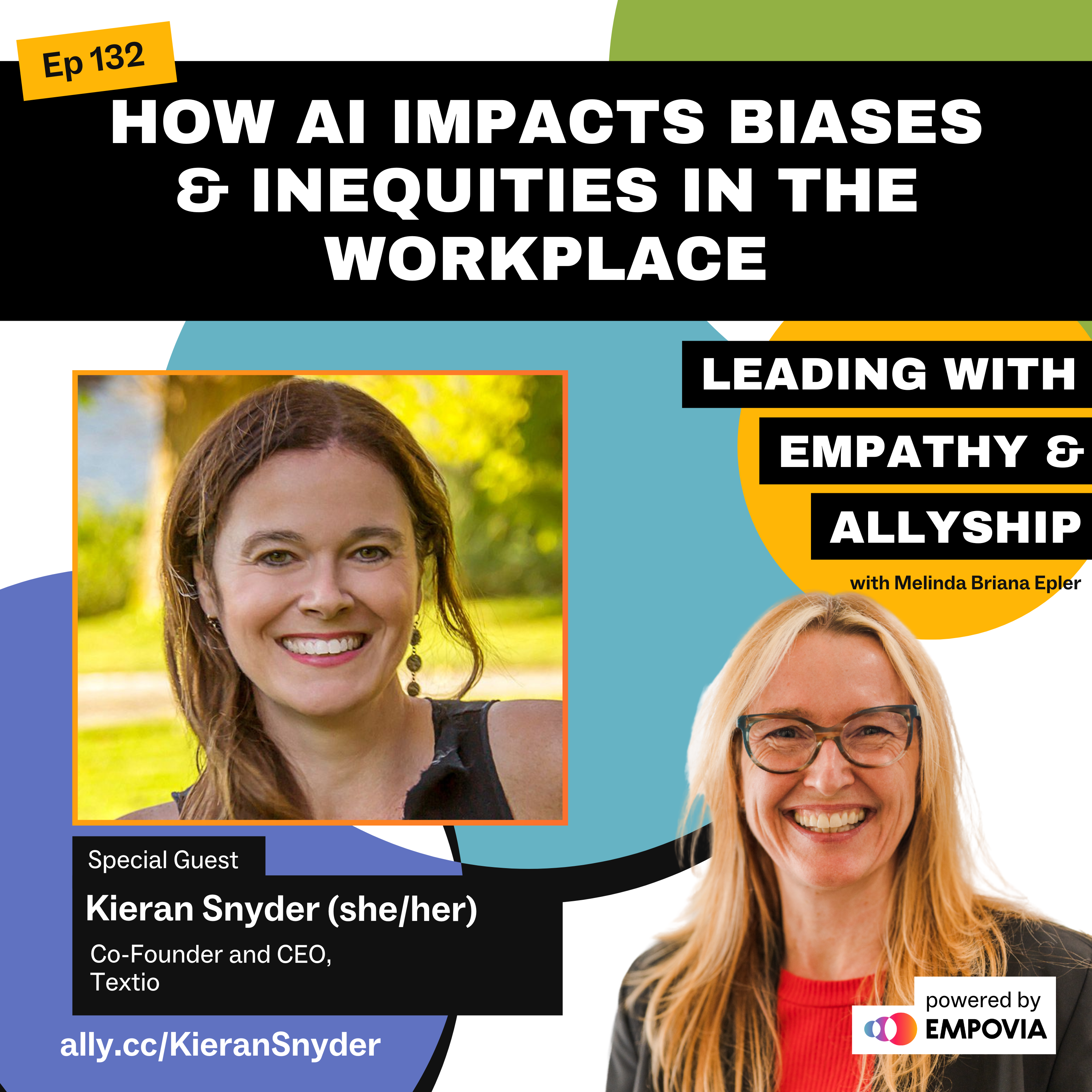
| 47 min
How does generative AI impact teams? And what can we do to mitigate the impact of biased AI?
In Episode 132, Kieran Snyder, Co-Founder and CEO at Textio, joins Melinda in an insightful discussion about the impact of AI on workplace biases and inequities. They explore the potential harm and social biases perpetuated by generative AI, and look closely at how this applies to performance reviews. They also discuss key factors business leaders should consider when they adopt AI solutions in their teams, including recognizing these biases, establishing accountability systems that support DEI efforts, and safeguarding confidential employee information.

| 46 min
What are the key principles of inclusive design? How can we use those principles to create equitable and anti-oppressive products and services?
In Episode 129, Sandra Camacho, Inclusive Design Consultant, Educator & Strategist at Sandra By Design, joins Melinda in an informative discussion on techniques for designing anti-oppressive products & services. They discuss the importance of centering the needs of marginalized communities and considering intersectional identities throughout the product development and design process. They also dive into ways we can challenge and disrupt oppressive norms and systems to promote solutions that are accessible and beneficial for all individuals.
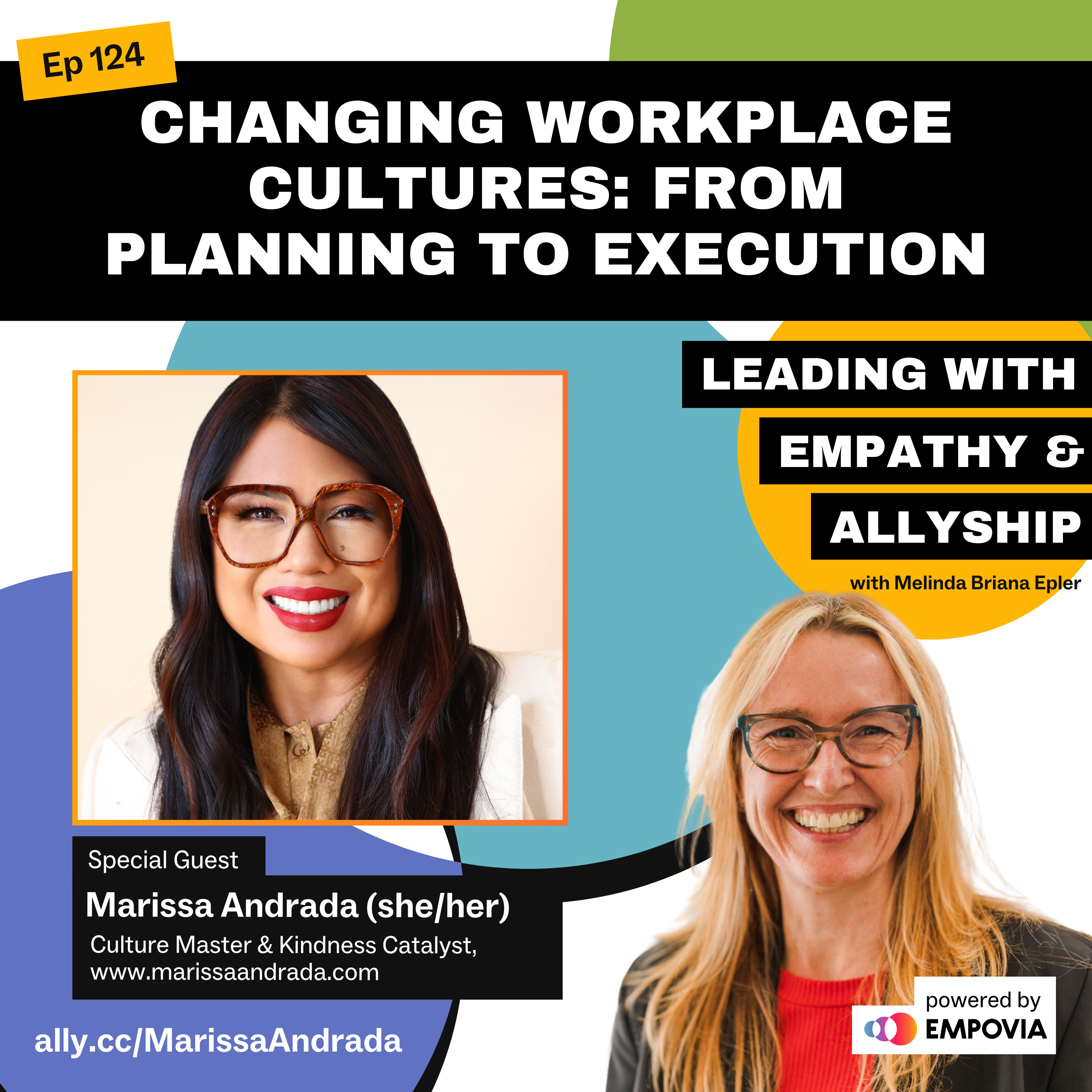
| 53 min
When is cultural transformation crucial for teams and organizations? What can leaders do to empower people in times of change?
In Episode 124, Marissa Andrada, Culture Master & Kindness Catalyst, joins Melinda in a solution-focused discussion on transforming workplace cultures. Marissa draws from her experience in planning and executing culture change across different industries. She shares insights on how we can harness the transformative power of kindness through transparency, empowerment, collaboration, and co-creation. She also explores the importance of building leadership capability and developing incentive programs to encourage people across organizations to meet their goals for transformation.
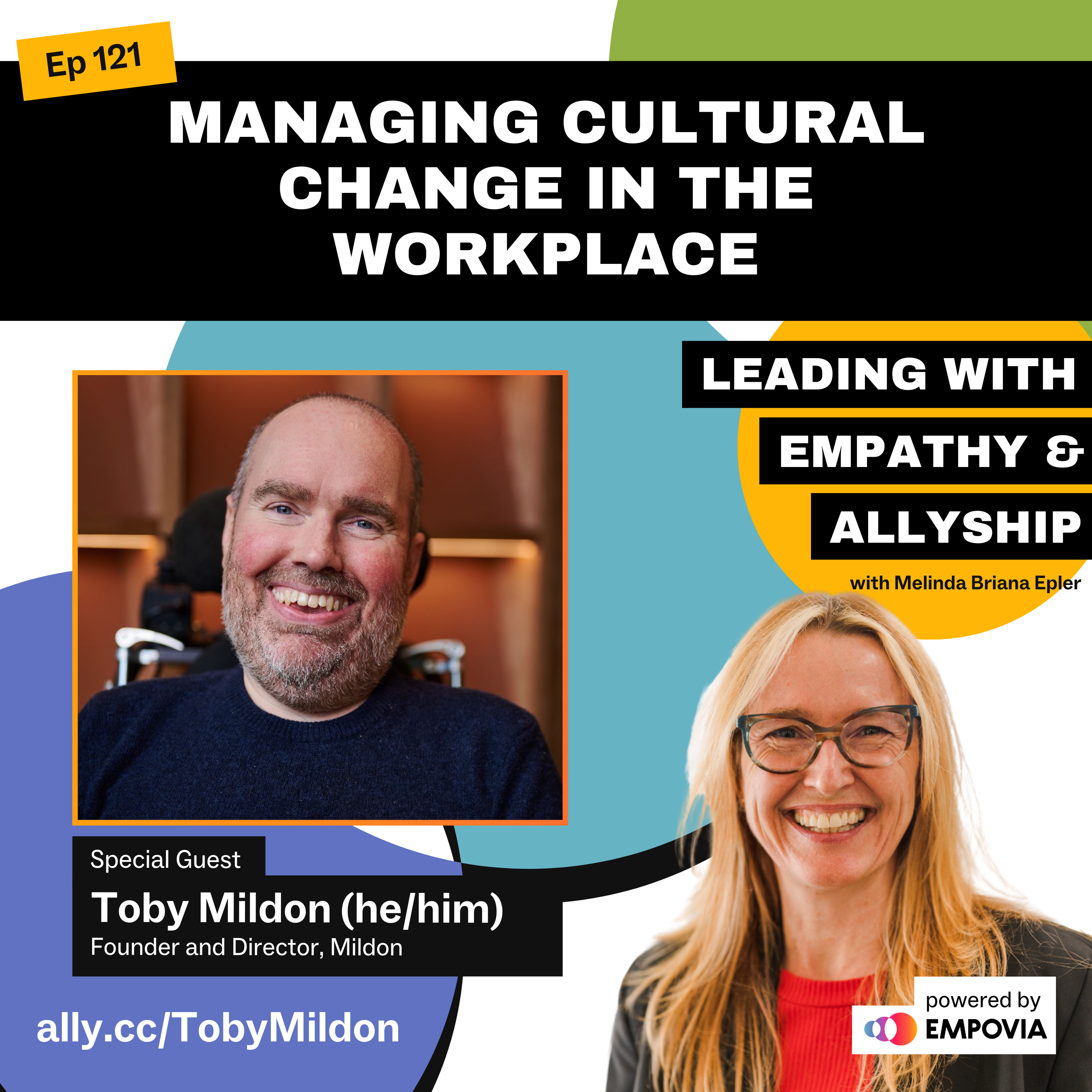
| 42 min
What are the strategies for managing cultural change? How can we measure the impact? And what are the emerging trends that may have an influence? In Episode 121, Toby Mildon, founder & director of Mildon, joins Melinda in an action-oriented discussion on creating organizational culture change. They explore various change management models and strategic frameworks leaders can implement to drive DEI initiatives and measure their impact across teams. They tackle the importance of DEI practitioners taking a human-centered approach to problem-solving and using data to identify and address significant issues in the workplace. They also share insights on emerging DEI trends and the future of diversity, equity, and inclusion in business.

| 50 min
In Episode 108, Dax-Devlon Ross, Founder / Principal of Dax-Dev and Third Settlements, joins Melinda in a reflective conversation about the changing landscape of DEI work over the years. They look into systemic shifts in communities and organizations, including the pushback to diversity, equity, and inclusion efforts. They explore what Dax-Devlon calls the BIPOC savior syndrome, an issue that incoming BIPOC leaders often face. Dax-Devlon also shares his experience navigating the DEI space as a Black cis man and how we can reflect and set goals to support DEI initiatives moving into 2023 and beyond.
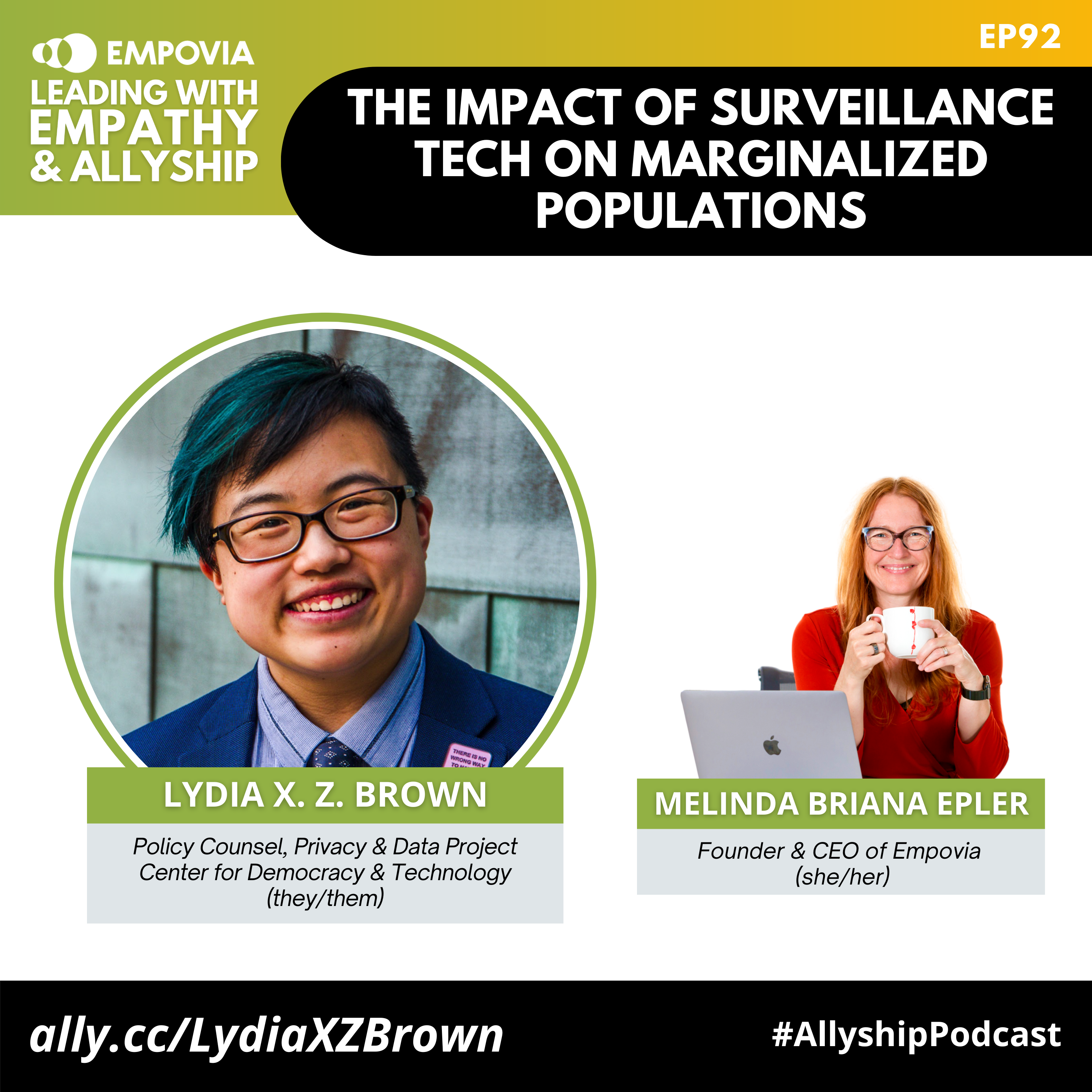
In Episode 92, Lydia X. Z. Brown, Policy Counsel for Privacy & Data at the Center for Democracy & Technology, joins Melinda in an enlightening discussion around the impact of surveillance tech on marginalized populations. They address the importance of understanding the threats of surveillance in our daily lives brought on by algorithmic technologies used in education, policing, healthcare, and the workplace, and they discuss how this tech can be disproportionately damaging to people of color and people with disabilities. Lydia also shares what actions are needed to protect health data following the overturning of Roe v. Wade and how individuals and organizations should approach data privacy to protect everyone’s rights and advocate for marginalized communities who are harmed by surveillance technologies.
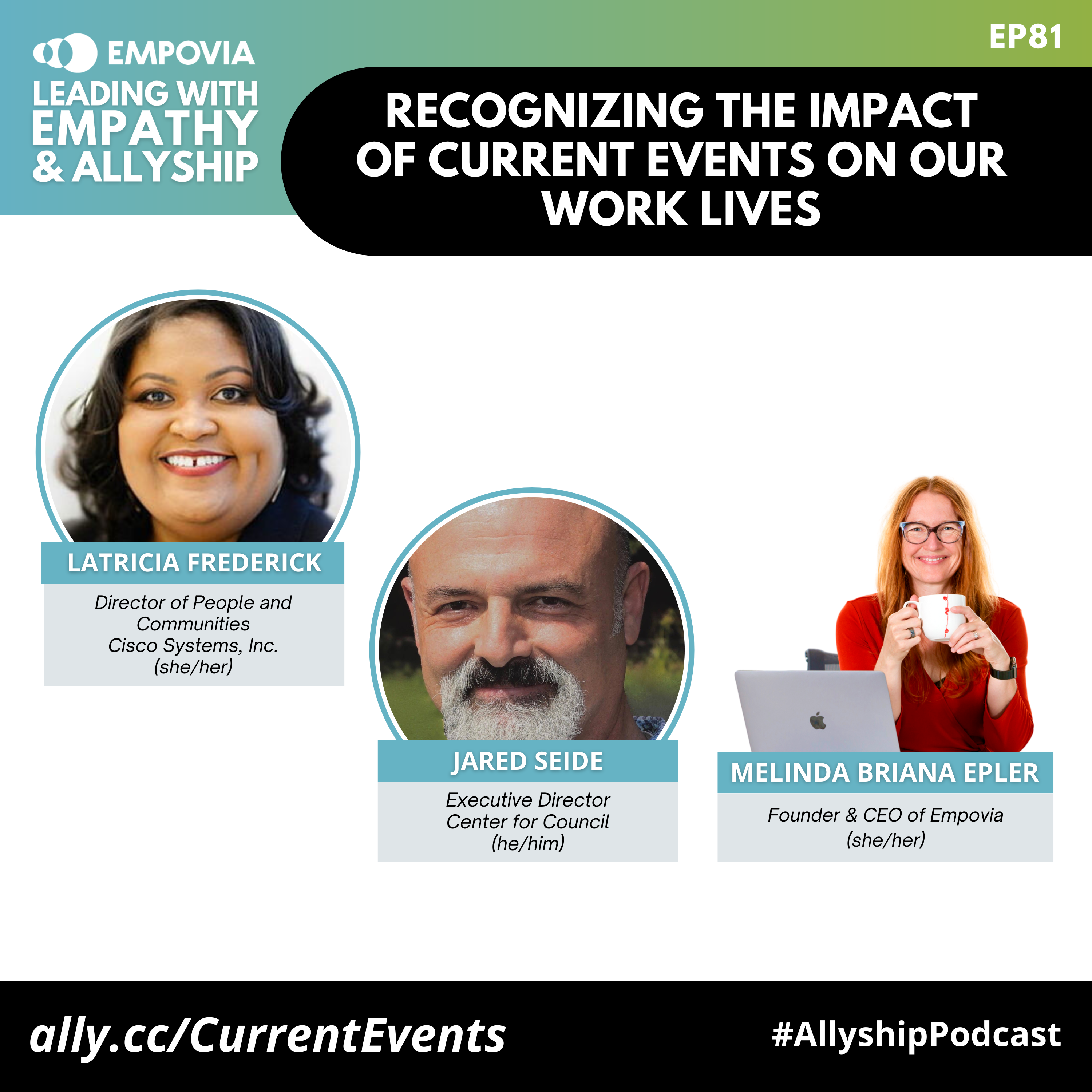
In Episode 81, Melinda is joined by leadership and management experts LaTricia Frederick and Jared Seide in a live recording. They discuss important ways for us to recognize, as well as protect our well-being from, the impact of current events on our work lives. They also dive into how managers, companies, and allies can take part in creating safe, compassionate spaces for addressing our experiences—whether it be through showing support, harnessing the power of vulnerability, or sharing stories.
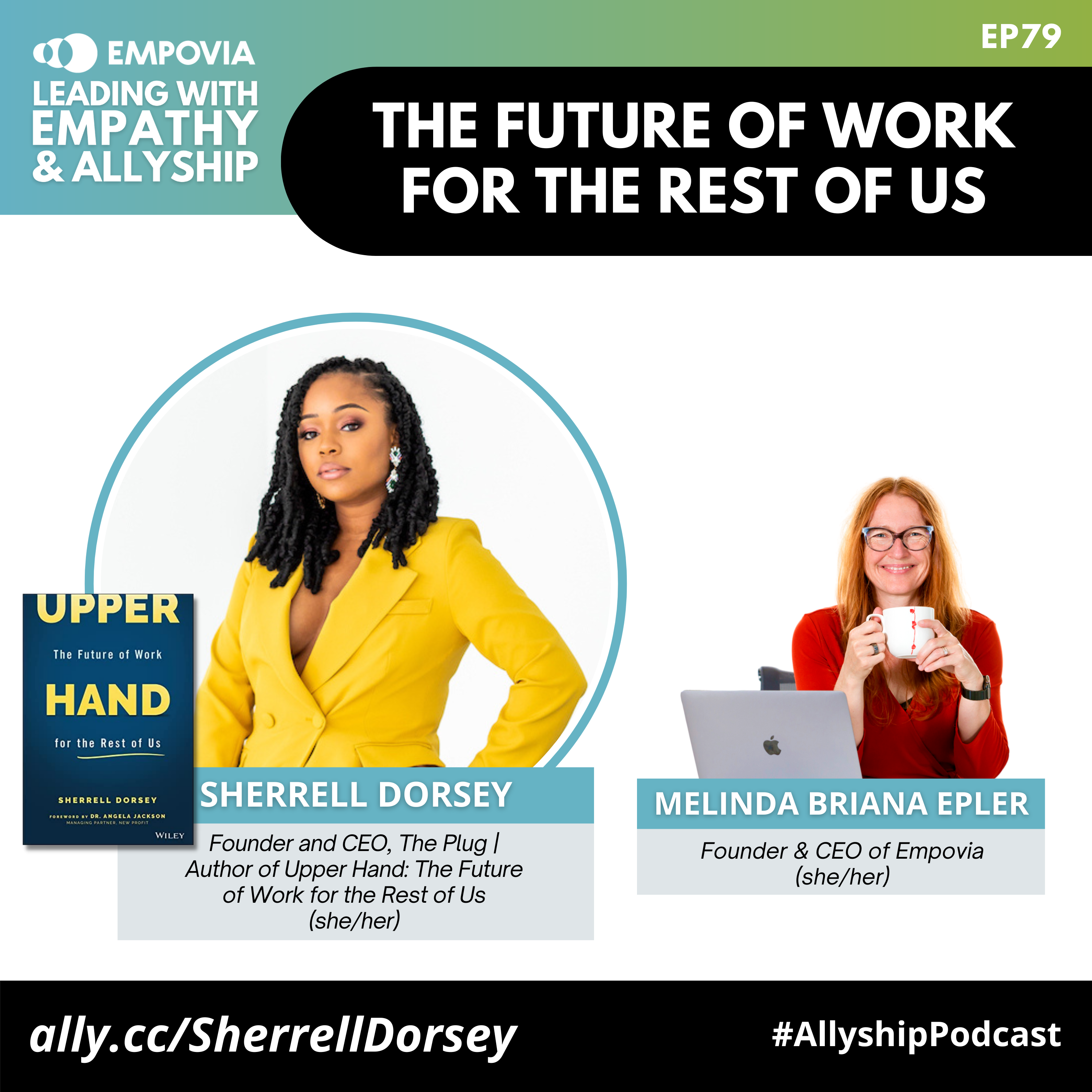
In Episode 79, Sherrell Dorsey, Founder & CEO of The Plug and Author of Upper Hand: The Future of Work for the Rest of Us, dives into an insightful conversation with Melinda about the future of work and strategies for supporting inclusive innovation. They discuss important ways for people from marginalized communities to thrive and actively take part in the tech-driven economy, whether that is by reskilling, upskilling, fighting coded bias, or getting started in tech.
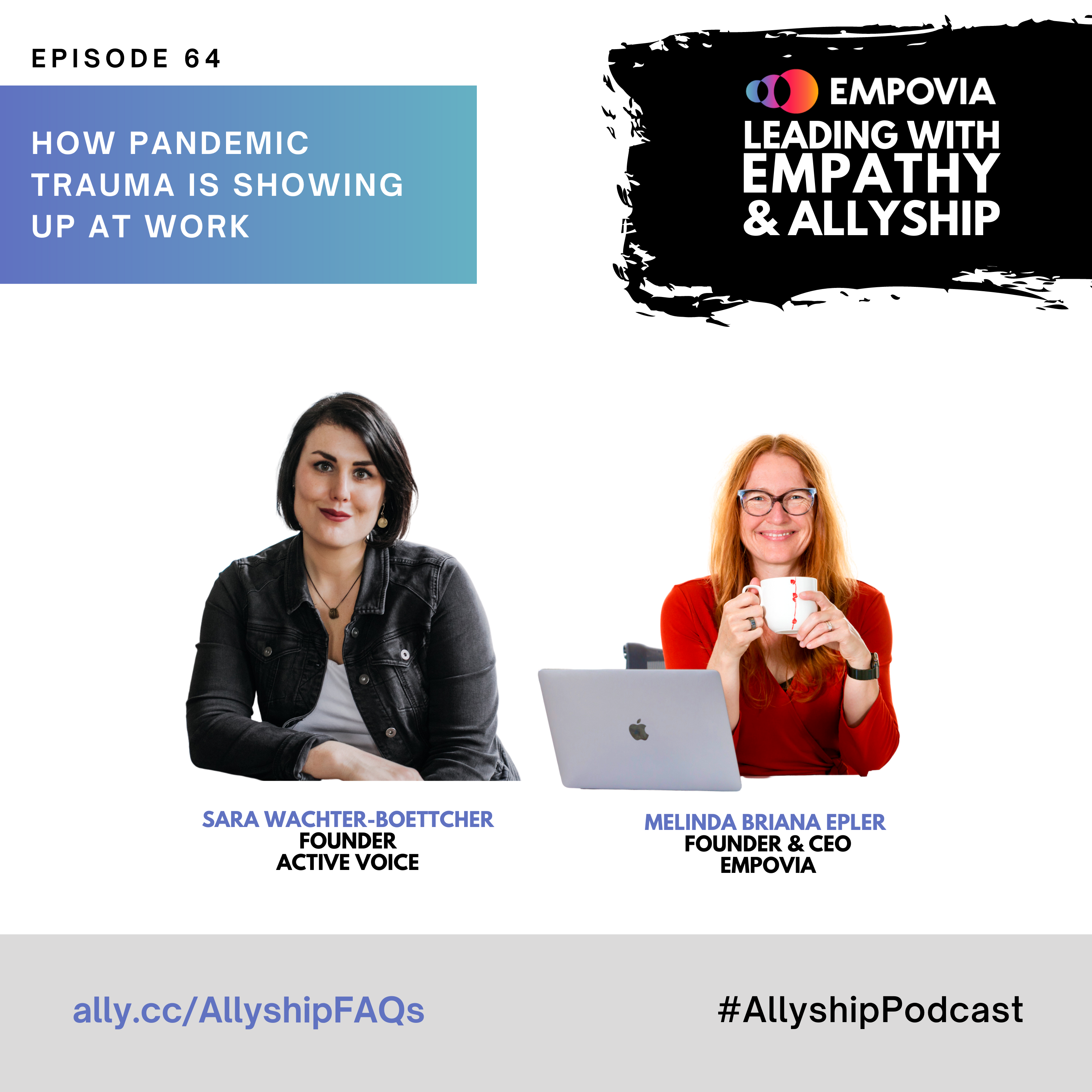
In Episode 64, Sara Wachter-Boettcher, Founder of Active Voice, joins Melinda in a discussion on how pandemic-related trauma affects leaders’ abilities to manage their teams. Sara provides practical tips on how we can regain access to our critical thinking and work through the trauma without harming people around us. She also touches on what organizations, managers, and allies can do to build trust and create a safe space for courageous conversations in the workplace.
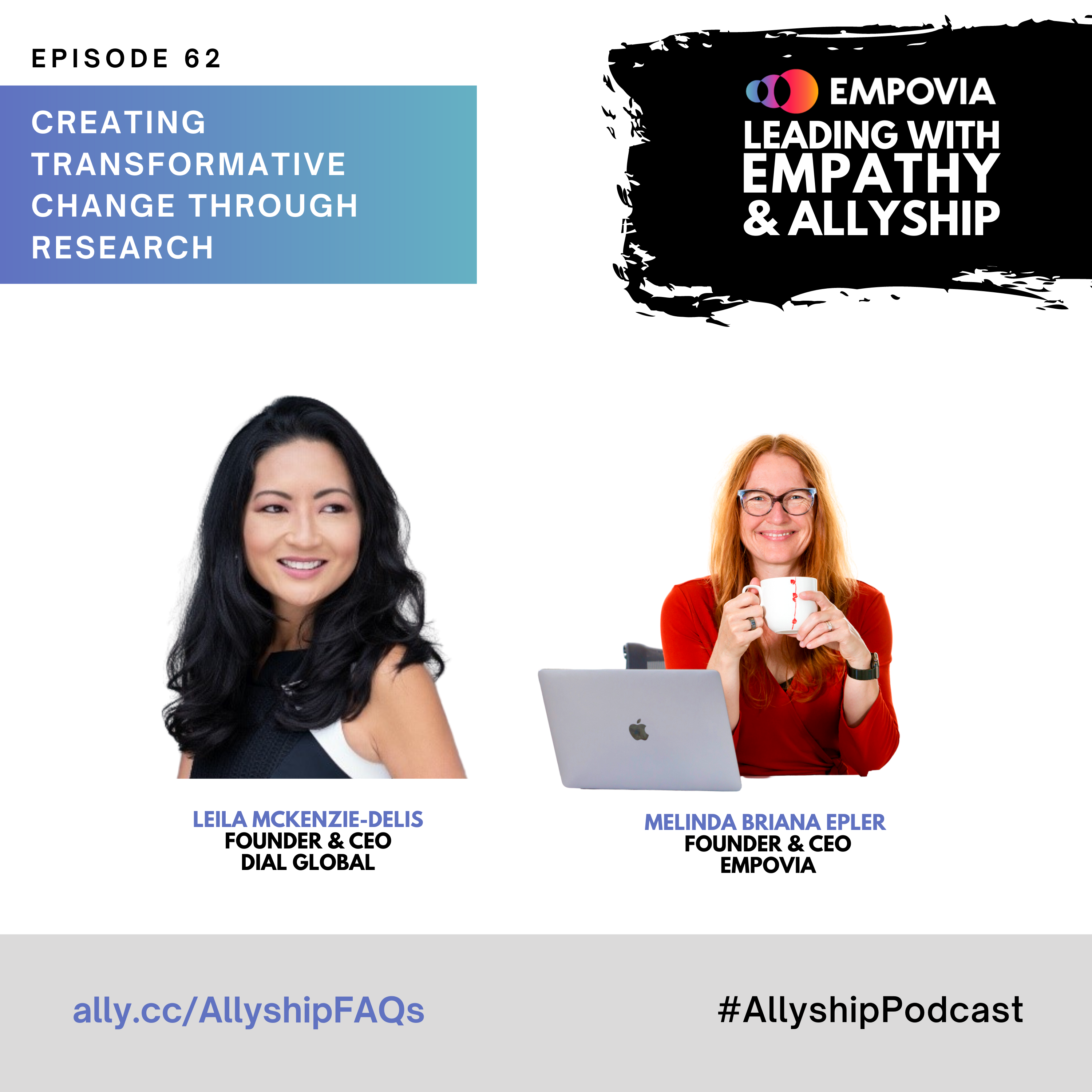
In Episode 62, Leila McKenzie-Delis, Founder and CEO of DIAL Global, Author, Activist, Speaker and Podcast Host shows how research is driving transformative change across industries and how data can enrich an organization’s decision-making processes around diversity, equity, and inclusion. Leila and Melinda also look into some key findings from the McKenzie Delis Packer Review 2020 study conducted in the UK workforce where a disconnect is observed between the company’s claimed priorities and the execution and strategy of said priorities.
